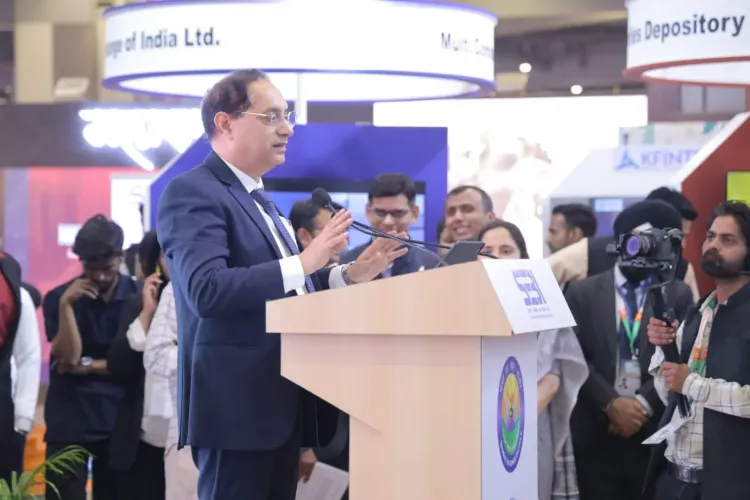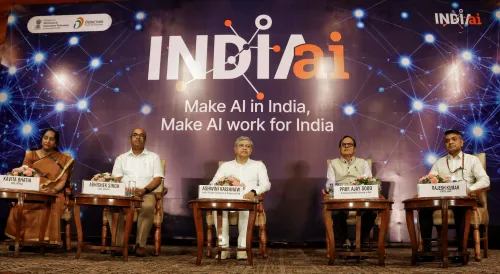Is SEBI Planning to Include REITs and InvITs in Market Indices?

Synopsis
Key Takeaways
- SEBI is considering including REITs and InvITs in major market indices.
- This could enhance liquidity and visibility for these investment vehicles.
- India is the fourth-largest REIT market in Asia.
- Current retail participation is only 1%.
- SEBI aims to lower minimum investment thresholds to attract more investors.
New Delhi, Nov 21 (NationPress) The Chairman of SEBI, Tuhin Kanta Pandey, announced on Friday that the regulatory body is currently evaluating the potential inclusion of Real Estate Investment Trusts (REITs) and Infrastructure Investment Trusts (InvITs) in major market indices. This initiative is being considered as part of a carefully structured, phased approach, which could significantly enhance liquidity, visibility, and institutional engagement in these investment instruments.
At an event in the national capital, Pandey characterized this as a strong policy signal for India's burgeoning REIT and InvIT sector, emphasizing the need for these instruments to play a more substantial role in financing the nation’s long-term infrastructure requirements.
“India ranks as the fourth-largest REIT market in Asia, yet activity remains minimal. Retail investment accounts for merely 1 percent, and trading volumes are still quite low,” he stated.
As of October, the total assets managed by REITs and InvITs amounted to Rs 9.25 trillion, spread across 24 listed InvITs and various listed REITs.
Pandey indicated that SEBI is considering a series of modifications to broaden market access, which includes permitting more liquid mutual funds to invest in these financial products, classifying REITs as equity to boost liquidity, and reducing minimum investment thresholds to attract a larger investor base.
He also mentioned that large non-banking financial companies could serve as anchor investors to strengthen the market.
The SEBI chairman highlighted that India's forthcoming phase of infrastructure development must increasingly depend on capital markets. According to NabFiD, Rs 700 trillion in investments will be required by 2047 to facilitate growth in sectors like power and urban transport.
Pandey noted that SEBI is collaborating with the finance ministry and state governments to expedite public asset monetization. He pointed out that public-sector entities such as NHAI, while not listed, can more readily initiate InvITs. Additionally, the processes for capital raising through IPOs and rights issues will continue to be streamlined.
While reiterating the importance of governance and investor protection, Pandey stressed that enhanced communication is essential to foster broader participation.
“Investor surveys indicate that individuals prefer receiving information in languages they are comfortable with, making simplified and accessible outreach crucial for the expansion of these products,” he added.










